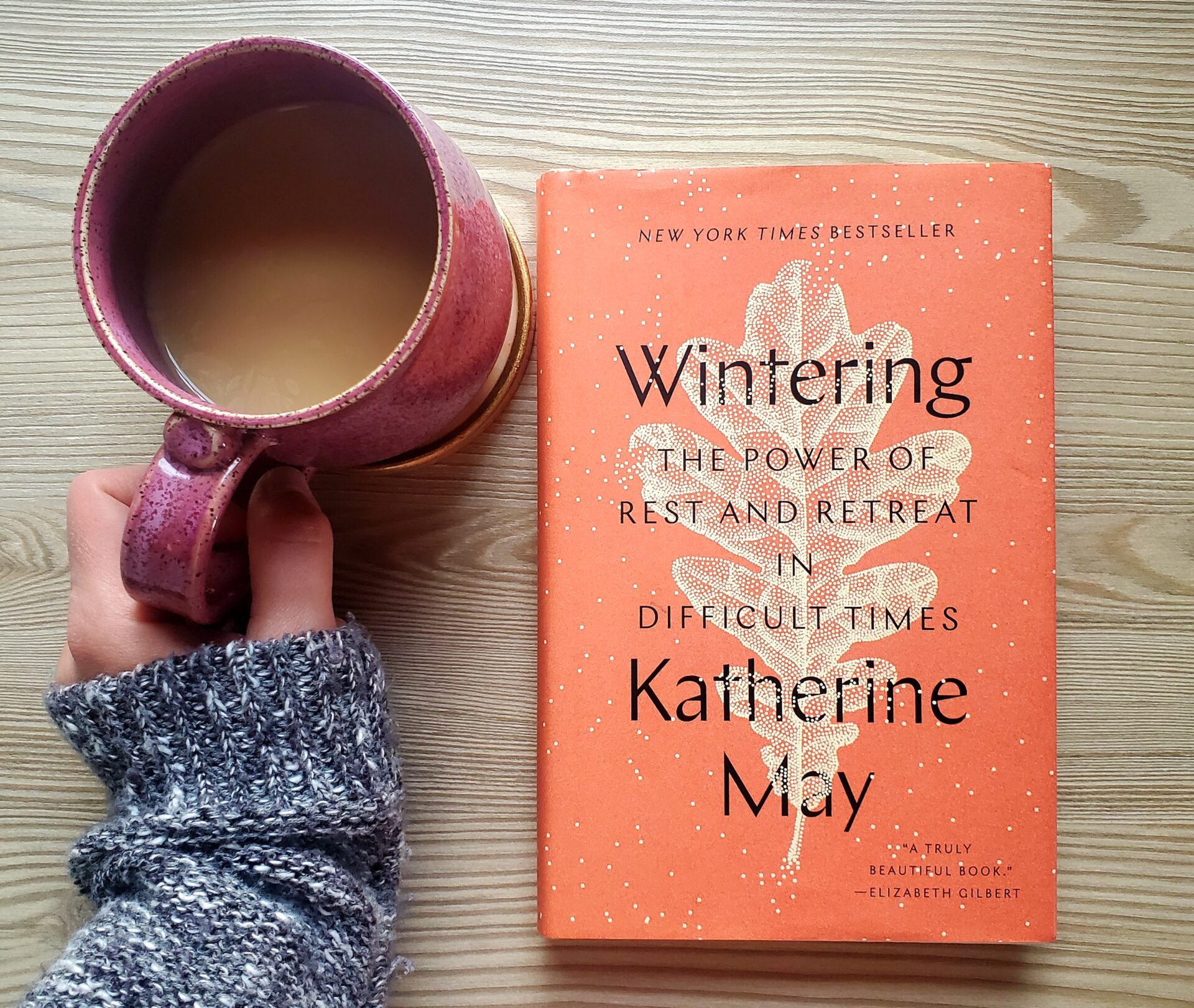So many people have recommended that I read Wintering: The Power of Rest and Retreat in Difficult Times.
Maybe it’s because I love hygge and cozy winter vibes so much. Maybe it’s because I speak frankly about dealing with seasonal depression. Or, maybe it’s because I essentially work three jobs and need to rest, goddammit.
Whatever the reason, I was very excited to get my hands on a copy of Wintering and glean what pearls of wisdom I could from this book that’s beloved by so many.
So, you can imagine my disappointment when I didn’t actually like Wintering.
What’s Wintering about?
Wintering: The Power of Rest and Retreat in Difficult Times is written by UK author Katherine May. It’s a memoir about learning to accept the difficult times in life with grace. It’s about surrendering to a negative event or season that’s bigger than you instead of trying to deny it and power through, which ultimately leads to feeling burnt out.
Wintering helps you embrace difficult times with all the grief and disappointment they warrant. All this is done to help you fully recover and bounce back because, as May reminds us, everything is cyclical. This, too, shall pass. Spring always follows the winter.
What I liked about Wintering
The message of Wintering is something I can totally get behind. Since I’ve heartily embraced slow living and slow productivity over the past year, I fully acknowledge the existence and potential detriment of “winters,” both literal and metaphorical. “Winters” are times when life hands you a curve ball and you need to retreat and hibernate in order to ultimately come out stronger on the other side.
It’s always helpful to learn how to handle hardships, and I agree with May that navigating them with acceptance and understanding is a much better way to get to a “spring” instead of pummeling through the “winter” full of unresolved fury and bitterness.
What I didn’t like about Wintering
In theory, Wintering hits all the right notes. However, the memoir’s book description says that May “forms a guiding philosophy” about how to deal with the many winters of our lives.
Um, sorry. I disagree. Wintering is about the importance of embracing the winters. But, May’s book isn’t necessarily a guide on how to embrace these winters.
Quite honestly, this book’s a bit of a downer. And, yes, while I understand that “winters” are supposed to be the more difficult times in life, I expected a book on how to navigate them to be more uplifting and hopeful in its approach. More inspirational.
May cites lots of examples of her own personal “winters,” such illness, near death experiences, and children’s behavioral issues, just to name a few. While she does offer up parables to give you hope and stories about how she hunkered down and rode out her own winters, they’re not exactly relatable. I mean, most people don’t have the luxury of lounging in an Icelandic hot spring as a way of “wintering” through their problems. Or, randomly deciding to home-school their kids when problems at traditional school rear their ugly heads.
As a result, the process of “wintering” comes across as a coping mechanism for the financially and socially “privileged” rather than a tactic that everyone is able to easily employ.
Wintering on managing first sleep and second sleep
There was one part of Wintering that struck a personal and helpful chord with me: the passage about “first sleep” and “second sleep.” May addresses the centuries-old sleep pattern of sleeping in two distinct periods. You can read more about first and second sleep here, but here’s a quick overview:
Sleep like the dead for four hours, usually between 10pm-2am (first sleep). Then, be wide awake for 2-3 hours in the middle of the night. Nothing can make you get back to sleep during this time. Finally grow tired again around 5 or 6am and fall back asleep (second sleep).
My body has long embraced the sleep schedule of a medieval peasant, and I’ve been cursing that in-between sleep period for decades. Anyone who’s battled insomnia knows how super frustrating it is to be wide awake when you’re supposed to be asleep — and when it feels like everyone else is asleep.
Wintering taught me to appreciate the in-between time by showing me that these few hours can be restful, even productive, without being stressful. That window between first sleep and second sleep is a time when no one else is awake, which means I don’t have any obligations to work, friends, family, errands, meetings, etc. My phone is mercifully quiet; no one’s calling and no one’s texting, and I’m not expected to respond even if they are. It’s my time to do whatever I want.
Once I started embracing the “extra time” in my day, I was able to use it to my benefit instead of my detriment. I leaned into it instead of fought it, and it’s been a restorative experience.
Should you read Wintering?
Despite all the hype out there, I honestly don’t feel Wintering is worth the read. Especially if you’re looking for guidance on how to care for yourself during difficult times. This memoir felt much more like the author working through her own shit instead of showing someone else how to work through theirs.
That said, a lot of people would disagree with me. Most readers absolutely adore Wintering. They find May’s stories relatable and her message comforting, to the point where they re-read her memoir every year when winter approaches. Since I seem to be in the minority, you may want to give May’s memoir a go.
What’s the book-inspired recipe for Wintering?
Be sure to check out my book-inspired recipe: Comforting Chicken and Rice Soup.






























































































































































































































